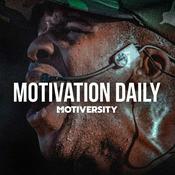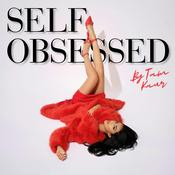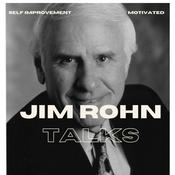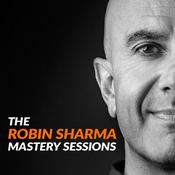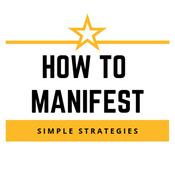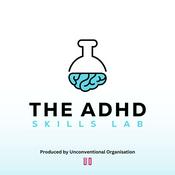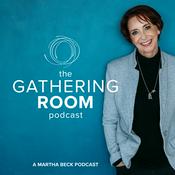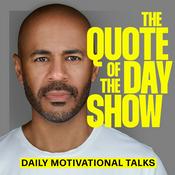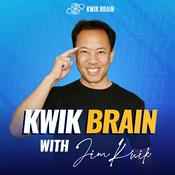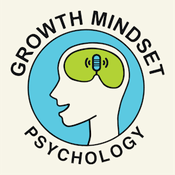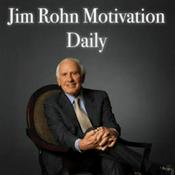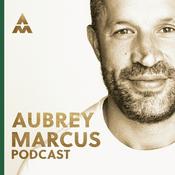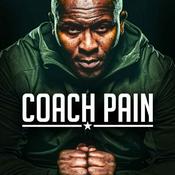362 episodes
- "If AI can write my essay in 30 seconds, why should I spend 30 minutes doing it myself?" I believe students asking this question deserve a thoughtful response ... or even better, an invitation to think critically about their own values and personal philosophy around artificial intelligence.
In this episode, I'm offering some tools to help you facilitate these conversations with students, breaking down the neuroscience of why writing matters in ways AI can't replicate. We'll explore three core principles:
1) Writing is brain-building: When students write, they create neural pathways through neuroplasticity. Every time they struggle to find the right word or rewrite a sentence, they're strengthening cognitive infrastructure they'll use for life. When AI does the writing, those pathways never form.
2) Writing is thinking: Writing isn't just a way to show your thinking—it IS the thinking itself. The act of translating thoughts into words forces a level of clarity that thinking alone doesn't require.
3) Writing is uniquely human: Students are still discovering who they are as thinkers and writers. They haven't written enough to find their unique voice yet. When they default to AI, they skip the process of discovering their authentic perspective.
I also address the question teachers hear constantly: "Why can adults use AI but students can't?" The answer lies in understanding the critical window of adolescent brain development and why students need to build these skills before they can effectively use AI as a tool.
If you're looking for language to help students understand what they're losing when they default to AI—and a framework for teaching them why their thinking and voice matter—this episode is for you.
Resources mentioned:
"Stay Human: Protect Your Brain Power in an AI World" 3 lesson mini unit
https://shop.truthforteachers.com/products/ai-literacy-lessons-teaching-students-why-writing-and-thinking-matter - Growing up, every report card comment and parent conference involved my teachers expressing some version of the following:
"Angela is smart, but not working to her potential."
"Angela needs to focus and apply herself."
"Angela is a capable student but does not put forth effort."
"Angela could do the work if she wanted to but she appears lazy and unmotivated."
I shared a little of this story a few years back, and how I was labeled as gifted at first, and then diagnosed with a learning disability in math:
EP163: I was a disengaged student who nearly failed high school
For years, I believed something was fundamentally wrong with the wiring in my brain. Despite everything I'd accomplished, I felt inconsistent, unfocused, and unable to just ... do the thing like everyone else seemed to. Normal adulting tasks felt like they required herculean effort.
It took decades to understand: I'm not lazy. I'm neurodivergent. And that changes everything.
In this episode, I'm sharing my journey of understanding my brain, from my bipolar diagnosis in my early 20s to discovering CBT and mindset work, to finally creating the resource I wish I'd had all along.
I'll tell you about Motivation Lab, a new coaching app I've built that translates the neuroscience principles from my Finding Flow curriculum into a format for teens, young adults, and anyone who's ever felt like traditional productivity systems just don't work for their brain.
This is the story of why I created Motivation Lab, who it's really for (hint: maybe not you, but possibly someone you care about), and why I'm asking for your help in getting it to the people who need it most.
If you've ever wondered why consistency is so hard, why motivation feels unpredictable, or why no single productivity system works for everyone, I think you'll relate to what I'm sharing.
Check out Motivation Lab here: studio.com/motivationlab/
Read or share the blog post.
The first official podcast ep of 2026 will be out on January 11th. Thank you for listening to this interlude / announcement! - It's the final episode of the 2025 season, and I want to leave you with something meaningful. I'm sharing some personal thoughts as I prepare to step away for my December internet sabbatical. I'm thinking deeply about alignment, presence, and what it means to move forward with clarity and purpose.
If you've been feeling the tension between what you have to do and what you're called to do … this episode might resonate.
Key highlights:
Why I'm shifting directions in 2026 to focus on deeper connections with educators (and serving more than just folks in K-12)
How my personal life has come into greater alignment after moving and establishing new daily practices
My launch of teacher retreats after years of dreaming and planning (you're invited!)
An introduction to Due Season Press, my new website showcasing retreats, retreat/event planning services, editing and publishing support for authors, and more
Opportunities for schools and districts to host custom retreat experiences
Reflective questions to help you find your own alignment and mission heading into 2026
Get the shareable article/transcript for this episode here.
This episode is brought to you by MiaTiagoBooks.com.
P.S. If you'll miss having new episodes to listen to from now until January, here's a way to work back through the archives without having to scroll endlessly through episode titles. I have a set of recommended Truth for Teachers playlists you can access. They're a careful curation of the episodes I'm most proud of—and that I think will help you most—from my ten years of podcasting.
I've organized the playlists around four topics:
The Encouragement Playlist, if you need a boost of inspiration and motivation
The Productivity Playlist, if you want practical strategies for time management and getting things done
The Student Engagement Playlist, if you want tools for building relationships with students and enhancing your lessons
The Greatest Hits Playlist, which covers a wide variety of topics that have been really popular over the years but aren't necessarily connected to any larger theme. The Greatest Hits playlist offers a really nice variety of episodes.
If you're a longtime listener and accessed one of these playlists a while back, know that I updated them this month so they include newer episodes, too.
Go to TruthforTeachers.com/playlists and enter your email address to receive the playlist you want. I'll send you a PDF with a description of each episode, a link to its blog post/transcript, and a link to the MP3 file for listening. It also shares some special bonuses and other related resources I think you might like. EP337 Restorative practices aren't a strategy–they're a way of being (with Marisol Quevedo Rerucha)
2025/11/02 | 51 mins."The adults in the building need healing just as much as the kids do. Self-compassion isn't soft. It's the most radical act of self-preservation an educator can practice."
That's a quote from my guest in this episode, Marisol Quevedo Rerucha. She's the author of Beyond the Surface of Restorative Practices and the CEO of Heartset Consulting Group. A former teacher, principal, and district leader, she now supports individuals, communities, and systems in building high-trust, equity-centered spaces.
Together, Marisol and I explore what a restorative way of being looks like, how to build a classroom culture rooted in belonging and accountability, and why self-compassion is a foundational part of this work. Marisol also shares her personal story of healing, offers real classroom examples, and closes with an unforgettable metaphor about facing life's hardest moments with courage and community.
In this powerful conversation, Marisol Revucha shares why so many educators feel disillusioned with restorative practices and what needs to shift for true transformation to occur.
Whether your school is fully immersed in restorative practices or you're just starting to explore what it means, this conversation offers both heart and strategy. You'll walk away with a clearer vision for what's possible—not just for your students, but for yourself.
Topics include:
Why restorative justice often fails in schools
How to build a culture of repair and accountability
The role of self-compassion in restorative work
Real-time responses when students act out
Restorative practices for staff—not just students
"Being the buffalo": facing the storm together
Get the shareable article/transcript for this episode here.
This episode is brought to you by MiaTiagoBooks.com.- Metacognition — "thinking about your thinking" — is one of the most powerful skills we can teach students, and it doesn't require adding anything new to your already packed schedule. In this episode, you'll learn four simple, one-minute routines you can weave into your daily classroom flow to help students notice, analyze, and adjust their own thinking.
We'll explore:
How to use attention checks so students can redirect focus in the moment
Why brain break signals teach learners to connect physical energy with mental clarity (and how to manage them without chaos)
How mistake moments reframe errors as valuable information
A fresh take on end-of-day brain checks that builds awareness of learning strategies, not just content recall
Whether you teach kindergarteners or high school seniors, you'll walk away with concrete ideas for creating a classroom culture where students take ownership of their learning process.
Plus, I'll share how my Finding Flow Solutions K–12 curriculum can give you ready-made, no-prep lessons to teach these skills — and where to grab your free downloadable sample lesson.
Get the shareable article/transcript for this episode here.
This episide is brought to you by Listenwise and MiaTiagoBooks.com.
More Education podcasts
Trending Education podcasts
About Angela Watson's Truth for Teachers
Truth for Teachers is designed to speak life, encouragement, and truth into the minds and hearts of educators and get you energized for the week ahead.
Podcast websiteListen to Angela Watson's Truth for Teachers, The Tony Robbins Podcast and many other podcasts from around the world with the radio.net app
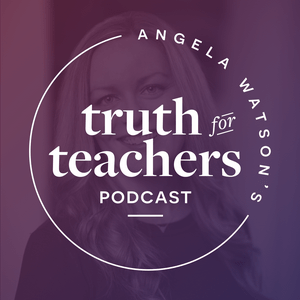
Get the free radio.net app
- Stations and podcasts to bookmark
- Stream via Wi-Fi or Bluetooth
- Supports Carplay & Android Auto
- Many other app features
Get the free radio.net app
- Stations and podcasts to bookmark
- Stream via Wi-Fi or Bluetooth
- Supports Carplay & Android Auto
- Many other app features


Angela Watson's Truth for Teachers
Scan code,
download the app,
start listening.
download the app,
start listening.



